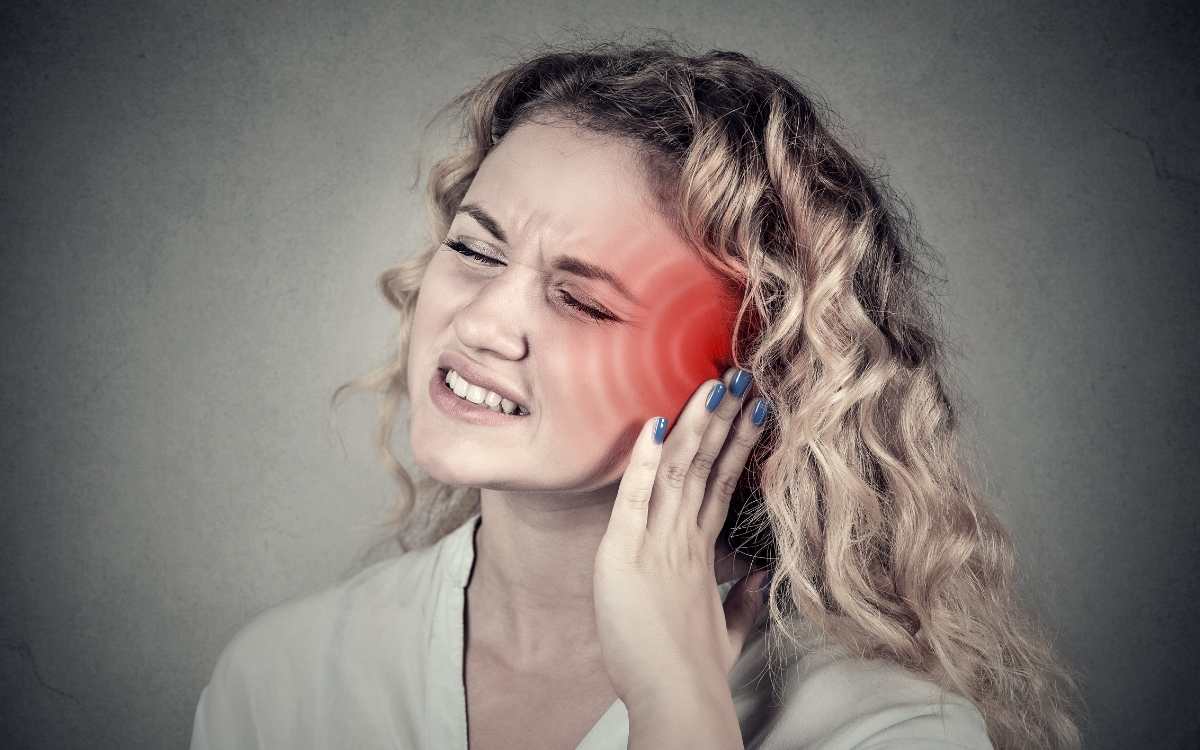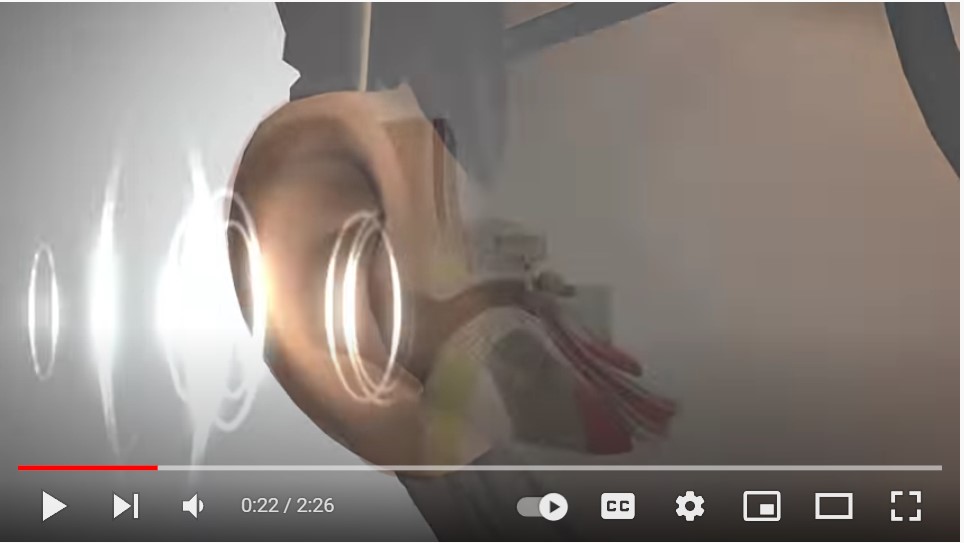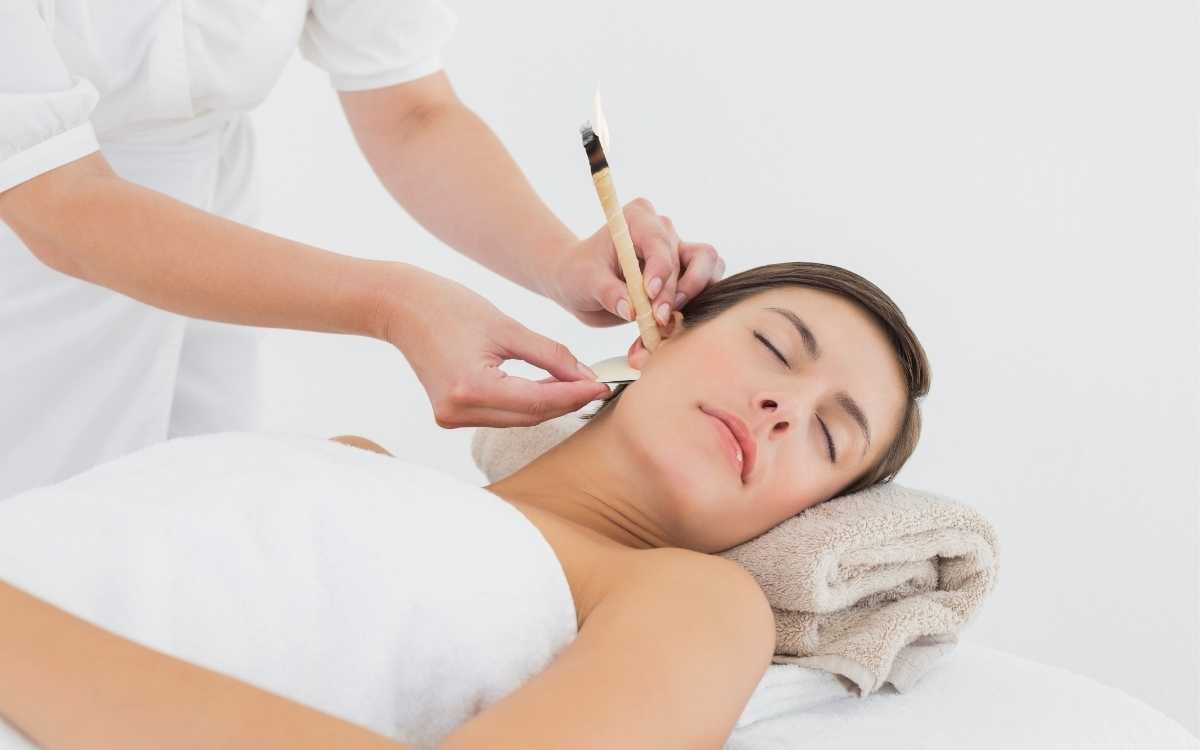The tensor tympani also reduces the sound of your own voice and sounds caused by chewing food, so these nearby noises don’t cause damage.
Ear Noises Explained
Do you ever hear funny noises inside your ear? Maybe a crackling noise, or a sudden popping. Are your ears squealing and squeaking? Do you hear a clicking sound you just can’t seem to get rid of?
Sometimes these ear noises can be pleasant, like when your ears finally “pop” in an airplane, and sometimes they can be downright annoying. These noises might seem strange, but fortunately, there are explanations for each sound we hear. We are here to shed some light on those mysterious ear noises and the science behind them.
Wax Worries
Many people in America suffer the annoyance of too much earwax. If you have this problem, you know that a buildup of earwax can cause earaches, itchiness, and decreased hearing.
Why You Hear Ringing and Buzzing Sounds
In some cases, too much earwax can even cause odd noises in your ear, like a ringing or buzzing noise. This is especially true if the wax is touching your eardrum, which creates pressure and changes how the eardrum vibrates. This is a form of tinnitus, and can be treated by a doctor who can remove the excess wax.
Tube Troubles
The Eustachian tube is a small passageway from your inner ear to the back of your nose and plays an important part in the hearing process. Every time you swallow, yawn, or blow your nose, the Eustachian tube opens and allows air to pass from the middle of your ear to the back of your nose.
This process equalizes the pressure in our ears, and prevents the eardrum from bulging in or out too much. If this process isn’t working properly, you are experiencing
Eustachian Tube Dysfunction—something many people will experience in their lifetime. Eustachian Tube Dysfunction can be caused by large adenoids, allergies, or a cold.
Why You Hear Cracking and Popping Noises
This dysfunction can cause crackling or popping sounds, sometimes referred to as “bubble popping noises” in our ears. The tube is lined with moist mucosa, and inflamed Eustachian tubes often get sticky, which causes the crackling and popping noises when the tubes are moving around. If the inflammation is serious, it can be easily treated with steroid nasal sprays.
Are you ready to make a change? Watch our latest video:
Muscle Madness
Did you know you have several tiny muscles in your ears? One of the muscles is called the tensor tympani muscle and serves many functions. This muscle reacts to loud, sudden sounds, and reduce the volume of these sounds to protect your inner ear from noise damage.
Why You Hear Rumbling Sounds
The tensor tympani also reduces the sound of your own voice and sounds caused by chewing food, so these nearby noises don’t cause damage.
A small amount of the population can actually control this muscle at will, and create a low rumbling sound in their ear—similar to the sound that is sometimes produced when you yawn deeply—by tensing the tensor tympani muscle. See if you can do it!
Thumping In Your Ear
If you’ve ever experienced a thumping sound inside your ears, you’re not alone. This thumping noise is called pulsatile tinnitus, and you may notice that the pulse matches your heartbeat. There are several different causes for this thumping ear noise.
Why You Hear Thumping Sounds in Your Ear
Change in blood flow is the most common cause; blood flowing more quickly or more turbulently than normal can cause thumping noises. Exercise, pregnancy, and overactive thyroids can all cause these blood flow changes.
Most of the time this thumping noise is normal and does not require treatment, but if it is often and bothersome, you should report it to your doctor.
Our ears are always working, making tiny movements even when we can’t feel them. Most ear noises are harmless and don’t indicate any health issues. However, if any of these ear noises lead to pain or are distracting you from normal life, be sure to speak with a doctor about treatment!
Bubble Popping Noise In Ear | What Causes and How To Treat It

Bubble popping noises in-ears are a common complaint. It is often an indication of wax within the ear canal, which can be removed by using cotton buds (Q-tips) or flushing it out with water.
If there is no improvement after removing ear wax and/or water irrigation, I recommend seeing a doctor to check for other causes.
Severe Tinnitus can be related to Meniere’s disease, which is an inner ear disorder resulting in vertigo and hearing loss, among many other symptoms. A thorough medical workup may reveal a number of problems within the body that are causing these symptoms.
Some people have had success treating their tinnitus with hypnosis, and others have had success with a range of other treatments such as acupuncture or herbal remedies.
If your ear problem is related to an underlying health disorder, a doctor may prescribe some treatment for this. The most important is to see someone about it as soon as you can. You shouldn’t wait for it to drive you crazy!
What Causes Bubble Popping Noise In Ears?
Some of the reasons for Bubble popping noise in-ears are given below-
1. Ear Wax – Often, the cause of popping or squealing noises is excess ear wax, which can be cleaned out with cotton buds or syringes. If you have a simple case of earwax, this is often required to solve your problem.
2. Tinnitus – This condition can often cause a variety of symptoms, including hearing noises. Tinnitus is a condition that affects your ears or the part of the brain which processes sound and can be caused by many things, from simple ear wax to severe inner ear damage caused by medication or other general health problems.
3. Infection – A bad infection in your Eustachian tube can cause many of the same symptoms, including popping noises in your ears. You’ll know you have this problem if it happens regularly, has no obvious cause such as wax buildup, and is accompanied by a scratchy throat or other flu-like symptoms.
4. Barotrauma – If you’ve flown in an airplane recently, you’re likely to have had some problems with your ears popping as you go up in altitude. Air pressure can be quite different on the ground and high up in the air, and this change affects the compressed air pockets in your inner ear. If you’re lucky, these will equalize by themselves, but sometimes they need a little help, such as pressing on the ear or swallowing to force open a tube.
5. Tumors – A tumor in your ear can sometimes cause popping noises, although this is relatively rare, and any experienced medical personnel will be able to tell the difference between a normal symptom of constricted airways and a severe problem.
6. Meniere’s Disease – This is an inner ear condition that usually causes a ringing noise but can also cause popping. It has many other symptoms as well, including vertigo and hearing loss.
7. Ear Drum Rupture – If you have had a nasty infection or have been exposed to very high pressure, an eardrum explosion can sometimes occur. A ruptured eardrum can be repaired if caught early enough, but sometimes surgery is needed to put a new one in.
8. Ear Wax Blockage – If you have been getting a build-up of excess ear wax, it can swell up and push on the eardrum, causing popping and squealing noises. Any excess wax must be removed to avoid this problem.
9. Foreign Object – Sometimes, a small piece of plastic or other debris may become stuck in your ear and cause it to pop when you try to move. You should visit a doctor if this happens, as these kinds of things can sometimes be hard to remove by yourself.
10. Perforated Eardrum – If you’ve been exposed to very high pressure or an explosion, then your eardrum may be damaged. In addition to the popping noises, you may also have hearing loss and dizziness, although in some cases, it can heal on its own without any treatment needed.
11: TMJ Disorder – If you have a problem with your jaw joint, it can cause popping noises in your ears, ringing, and other symptoms.
12. Benign Fasciculation – This is an uncommon, rare condition that causes the muscles to twitch uncontrollably, which can sometimes include parts of the ear and cause popping noises to occur as they flop about.
Bubble Popping Noise In Ears Treatment

Some treatments for the Bubble popping noises in-ears are Glycerin drops, over-the-counter earwax removal kits, and hot compresses.
- Glycerin drops: Glycerin is a lubricant, and it is used for patients who have dry ears. It also loosens the earwax so that it can be washed away more easily. Apply a few drops of glycerin into the affected ear canal, try to lie on your side, and let it run out through the other ear. Do not blow or try to force the earwax out. After a few days, the earwax will soften, and it can be washed away. ( Ref.)
- Over-the-counter ear wax removal kit: some solutions can be used to soften ear wax, making it easier to remove. There are several different brands available OTC, usually in health and beauty supply stores. These kits work by applying a solution to the outside of the ear canal that contains a small amount of alcohol. The alcohol helps loosen up any hardened wax inside your ear canals so that it can be dissolved away.
- Hot Compress: If your ears are blocked due to colds or flu, try hot compresses to unblock them. Place a damp flannel in a bowl of boiling water for a few minutes and lie with the affected ear on the bowl about half an hour before bedtime so that the steam can clear the ear. Alternatively, add two or three drops of essential oil to the bowl and inhale the vapors when you drape a towel over your head as you lean over it. (eucalyptus, thyme, lavender, and peppermint oils are good choices)
- Ear candles: Although no scientific studies have been performed to prove that ear candling is effective, people have been using this ancient technique for many years with success.
How To Do Ear Candles?

Ear candles are sold in health food stores and some pharmacies.
To use ear candling, you start from the outer ear and move inward toward the eardrum.
A slow, steady pull is used while keeping your head tilted so that the wax moves down into your ear.
What happens during Ear Candling?
Scientific studies have found that ear candles cause a small flame to burn inside the candle. The flame is caused by oxygen traveling through the melted beeswax and wick in the base of the candle.
How Does Ear Candling Work?
Ear candles are often sold as an alternative remedy for sinus problems, hearing loss, and other health issues. The idea is that the ear candle will draw out impurities from your ears.
The idea is based on the ancient concept of Reiki, a Japanese technique that uses energy to promote healing. Some people believe that the same principle can be used by ear candling to improve health.
The theory behind ear candles is that the flame inside the candle will create a vacuum effect as it burns.
When air tries to rush into the hole, pressure builds against your tympanic membrane, also known as your eardrum. The pressure pushes out wax and other gunk from your ears.
What Are The Risks of Ear Candling
The flames could cause injury or burns if they come in contact with skin or clothing. If you have a hole near the eardrum, burned wax from the candle may drain into your ears and seriously damage your hearing. Also, smoke from burning candles can deposit harmful substances deep inside your ear canal.
Ear candling is not recommended for people with sensitive ears or an ear infection.

How useful was this post?
Click on a star to rate it!






